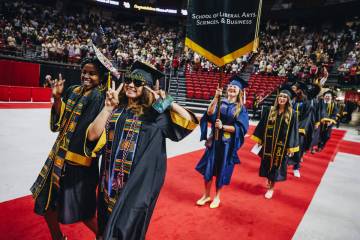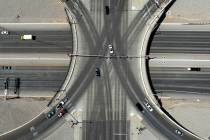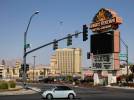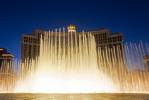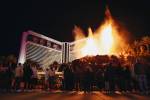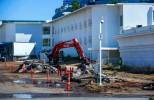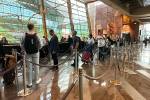Southern Nevadans weigh benefits, opportunities in Cuba
People in Southern Nevada had mixed reactions Wednesday to the United States normalizing relations with Cuba.
The news also had gaming analysts speculating on what the change could mean for casinos that once existed in Havana.
Some believe that President Barack Obama’s restoration of diplomatic relations with the communist country after those ties were cut 50 years ago and opening embassy offices in both countries is a “mistake.” Others were glad and said the decision will lead to improved relations between the two nations.
Tony Alamo, who came to the United States from Cuba in 1961 when he was 20 years old, said Obama’s decision was not in the best interest of the American people nor those living on the island.
“It’s a horrible situation that he has created,” he said Wednesday. “It’s disappointing not only for the people in this country, but around the world. I don’t know who we are going to benefit from the policy that he dictated today.”
An estimated 1.8 million Cubans were in the United States as of 2010, according to the U.S. Census Bureau. According to a 2011 report by the Pew Research Center, Las Vegas is one of the top 10 metropolitan areas with the highest percentage of Cubans. About 3.3 percent of the city’s Hispanic population is of Cuban origin. Hispanics represent 29.7 percent of Las Vegas’ total population.
In 1961, the U.S. imposed an economic embargo and severed its diplomatic relations with Cuba.
As part of the policy changes, the U.S. is also taking steps to increase travel and commerce to Cuba.
John Tuman, professor and expert in Latin American politics at the University of Nevada, Las Vegas, said older Cubans are more likely to oppose the move, while younger generations are more open to support this kind of policy.
Alex De Castroverde, whose parents came to this country from Cuba, said he was personally “torn.”
“Hopefully it turns out to be a good thing, but at this point, I have reservations,” he said Wednesday. “It’s been 50 years and nothing has happened as far as our wishes and hopes that one day it will be a free Cuba.”
Tuman said it was too soon to “predict what the outcome will be.”
“But I think that the effect of this will be sort of gradual improvements between the U.S. and Cuba,” he said Wednesday. “I think the Obama administration had been moving in this direction, but there had been impediments in this. But my sense here is that there’s a pragmatic approach in trying to improve bilateral relations.”
Venezuela provides an important subsidy to Cuba, but with the collapse in oil prices, the allied country doesn’t have as much money as it used to. That also could have led the Cuban government to improve its relations with the U.S.
“It’s completely possible that the Cuban government also is making a strategic calculation in terms of subsidies,” Tuman said.
Otto Merida, president of the Latin Chamber of Commerce, said he believes some of the relations are for economic development purposes. Merida came to the U.S. in 1961 under Operation Peter Pan, which relocated more than 14,000 Cuban children in America.
Cuban people are going through difficult financial times, Otto said.
“We need the tourism that is going to be created,” he said
Soon after the president announced new relations with Cuba, gaming analysts speculated casinos could return to Havana at some point in the near future.
“With a potential lifting of tourism restrictions in the cards for Cuba, we see a number of potential long-term opportunities for our gaming, lodging, and leisure coverage,” Credit Suisse gaming analyst Joel Simkins told investors.
Havana was home to numerous casinos before the U.S. embargo was put into place in 1961. Many Cuban casino workers came to Las Vegas and worked in the city’s hotel industry in the 1960s.
Simkins said gaming operators have historically considered Cuba as an attractive casino market.
“There is ample gaming supply in the Caribbean and casinos are usually an amenity versus profit center,” Simkins said. “U.S. regulated operators would likely proceed very slowly on gaming as infrastructure, regulation, and government relations would need to be sufficient before proceeding.”
Tony Henthorne, professor and associate dean of research and graduate programs at UNLV’s Harrah Hotel College, had a different opinion on gaming.
“I don’t think we are going to see gambling,” he said. “But I do see a lot of tourism.”
The immediate upside could be to the cruise ship industry, analysts said.
Stifel Nicolaus Capital Markets gaming analyst Steven Wieczynski said a new port in the Caribbean could draw significant interest from North American passengers.
He said three of the cruise lines — Carnival, Norwegian and Royal Caribbean —operate in the Caribbean.
“An opening of Cuba could generate material incremental demand, both from repeat cruise customers and those new to the industry,” Wieczynski said.
Contact Yesenia Amaro at yamaro@reviewjournal.com or 702-383-0440. Find her on Twitter: @YeseniaAmaro. Contact Howard Stutz at hstutz@reviewjournal.com or 702-477-3871 Find him on Twitter: @howardstutz.











